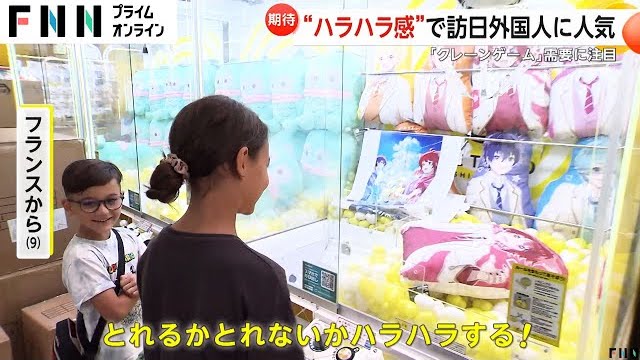TOKYO, Jul 23 (News On Japan) - Crane games, where players attempt to grab prizes, are now found not only in game centers but also in convenience stores. Since March 2024, major convenience store chain Lawson has been actively installing crane game machines and aims to expand to 1,000 stores nationwide by fiscal year 2025.

Yumi Yamaguchi, head of Lawson's toy division, said, "We hope customers can casually enjoy prize (crane) games. Stores near tourist areas have been well-received by international visitors."
The game center industry has been struggling due to the rise of online gaming, with the number of game centers nationwide decreasing by 30% over the past five years. However, there is growing anticipation for the increasing demand from inbound tourists.
At a game center in Shinjuku, Tokyo, nearly 40% of the customers are foreign tourists. When asked about the appeal, visitors commented, "I love pressing the buttons! The suspense of whether I'll win or not is thrilling!" and "We don't have such new types in Korea!"
The simple operation and exclusive prizes available only in Japan are key attractions. A man from Singapore, though he only won some snacks, spent 4,000 yen on games that day.
Jun'ya Tadokoro from ME TOKYO SHINJUKU commented, "Many foreign tourists keep trying until they win a prize. They might spend 5,000 or 6,000 yen, even 7,000 yen."
With high hopes for inbound demand, it remains to be seen how far the popularity of crane games will spread.
Source: FNN















